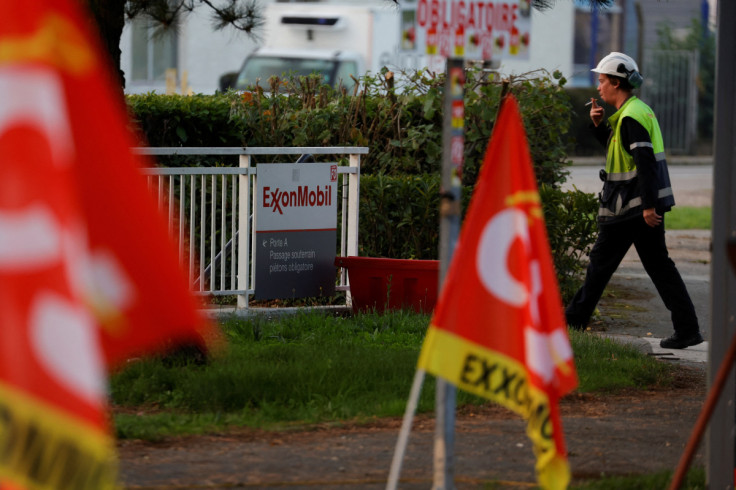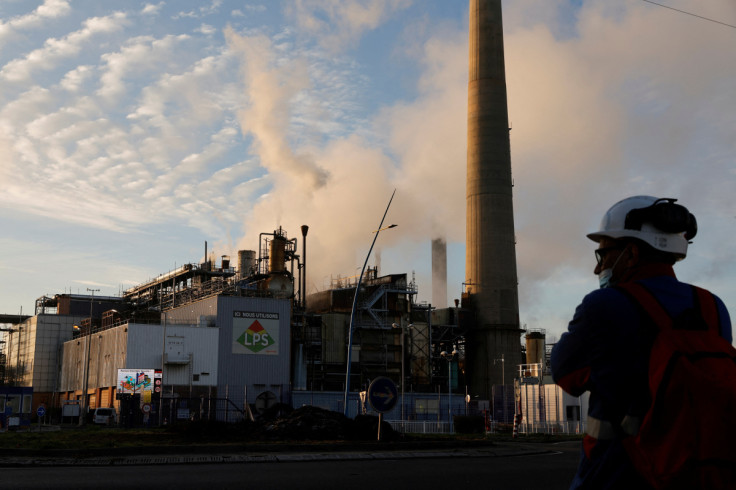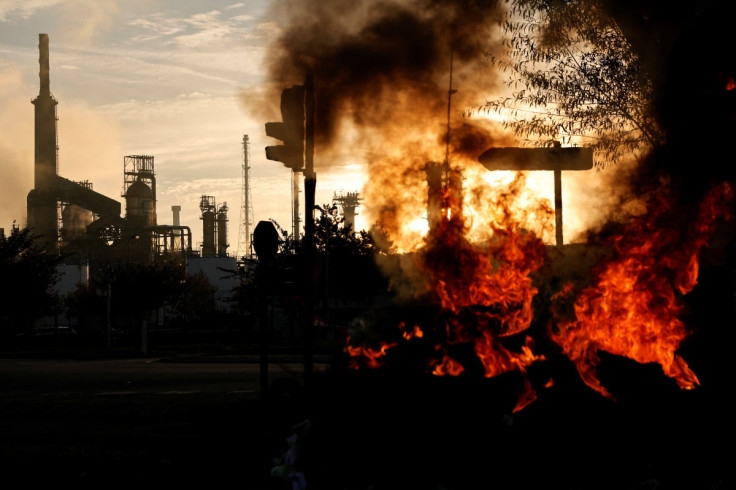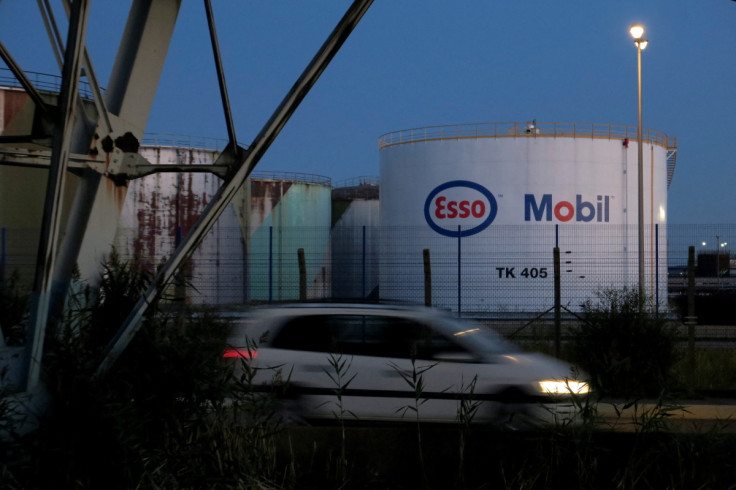France Starts Forced Return To Work At Fuel Depot In Showdown With Union

The French government on Wednesday started ordering some staff at an Exxon Mobil fuel depot back to work, battling to secure petrol supplies following weeks-long strikes but risking a wider conflict with trade unions.
The government said it was requisitioning some staff at the Gravenchon-Port Jerome depot run by Exxon's Esso France business, where the hardline CGT union remains on strike despite an agreement between management and other unions over pay.
The CGT has called for support from workers in other sectors and there were signs of that happening after a representative of the FNME union said some staff at EDF's nuclear plants had resumed a strike over wages, delaying maintenance work on at least five reactors, including the Bugey facility.
"In view of a strike by part of the Port-Jerome staff, in Normandy, the government launches the requisition of staff necessary to operate the depot. The requisition is starting today," the energy ministry said.
The CGT said it would challenge the requisition notifications in court once it had received them.
While the right to strike is enshrined in France's constitution, the government can requisition a minimum number of staff needed to sustain a service in certain circumstances, although the move can be disputed. A government attempt in 2010 to requisition refinery staff was suspended by a judge.
THREAT
After shying away at first from interfering in labour disputes pitting the CGT against oil majors TotalEnergies and Exxon, the government on Tuesday threatened to requisition staff at Esso France depots and said similar measures were possible at TotalEnergies if wage talks failed.
The strike at TotalEnergies' French refineries resumed across all sites on Wednesday, the CGT said.
The refineries stoppages in France are among the longest since the cost-of-living crisis sparked a wave of labour unrest across Europe.
They have caused snaking queues at French service stations and rationing in some regions, and sent diesel refining margins to record highs in Europe and the United States.
TotalEnergies is holding later on Wednesday its first talks with unions that are not participating in the strikes.
It has said the CGT union is "welcome" if it ends the walkout - a condition the union rejected earlier this week as "blackmail".
In the nuclear sector, FNME representative Viginie Neumayer told Reuters the union had sent a message of support to striking workers at refineries and petrol depots owned by TotalEnergies and Exxon.
"The threat of requisition which is above all a sign of government feverishness has never demonstrated its effectiveness in getting out of this conflict," Neumayer said.
Sylvain Bersinger, an economist at consultancy Asteres, said the economic impact of the strikes should be minor this quarter.
"Past experience shows that such a loss of activity due to strikes is generally made up for in the following quarter," he added.



© Copyright Thomson Reuters {{Year}}. All rights reserved.





















